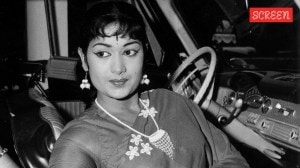Cambodian senate okays Khmer Rouge trial
PHNOM PENH, JAN 15: Cambodia's upper house of parliament, or Senate, passed a key bill on Monday to set up a tribunal to prosecute former ...

PHNOM PENH, JAN 15: Cambodia’s upper house of parliament, or Senate, passed a key bill on Monday to set up a tribunal to prosecute former top members of the communist Khmer Rouge government accused of genocide.
Senate President Chea Sim said the bill was passed with the support of 51 of the 61 Senate members present.
“Today has been very successful. We approved the Khmer Rouge law by a majority,” he told Reuters.
The tribunal, based on an American formula, will involve Cambodian and foreign prosecutors and judges jointly indicting defendants and reaching verdicts together.
The foreign judges will be in a minority but will hold veto power over decisions. The system is a compromise between Cambodian officials who wanted to run the tribunal on their own and the United Nations, which pressed for foreign control.
The bill was passed two weeks ago by Cambodia’s lower house after months of delay. It must now be ratified by the Constitutional Council and signed by King Norodom Sihanouk.
Ouk Bunchhoeun, chairman of the Senate’s legislative body, said the upper house would send the law quickly to the nine-member Constitutional Council for approval. He said the council would decide on the bill a month after receiving it.
Senior cabinet Minister Sok An, the top government negotiator on the Khmer Rouge trial, said it could still take some time to set up the special court.
Once the law is signed, talks will begin with the United Nations over procedures and technicalities, involving another agreement before the world body can participate in the tribunal.
Only then can the process of setting up the court begin.
The tribunal will prosecute Khmer Rouge leaders accused of responsibility for the deaths of an estimated 1.7 million people during their infamous "killing fields" regime of 1975-1979.
No Khmer Rouge leader has ever appeared in court to answer for the deaths. When the group finally collapsed at the end of the 1990s most of its surviving leaders were allowed to live in quiet retirement.
The Khmer Rouge’s supreme leader, Pol Pot, died in 1998.
Prime Minister Hun Sen said last week the trial was expected to begin at the end of this year. But he warned putting on trial former Khmer Rouge Foreign Minister, Ieng Sary, could bring war to Cambodia again.
But many senators did not believe that.
“The government has said repeatedly that both the military and political organisations of the Khmer Rouge were destroyed. So why should a war happen when the court tries Ieng Sary,” Senator Thach Sitha asked Sok An in the senate session. “I don’t believe war will come again because of Ieng Sary,” Sok An said that when the law was set up it would make the decisions.
“Everyone is under the law and when this law goes into effect, it is up to the judges and prosecutors who will implement the law,” Sok An said.
Ieng Sary defected to the government in 1996, a move that led a collapse of the Khmer Rouge in late 1998. After surrendering he was granted a partial amnesty by the king at the request of the government.





- 01
- 02
- 03
- 04
- 05

























